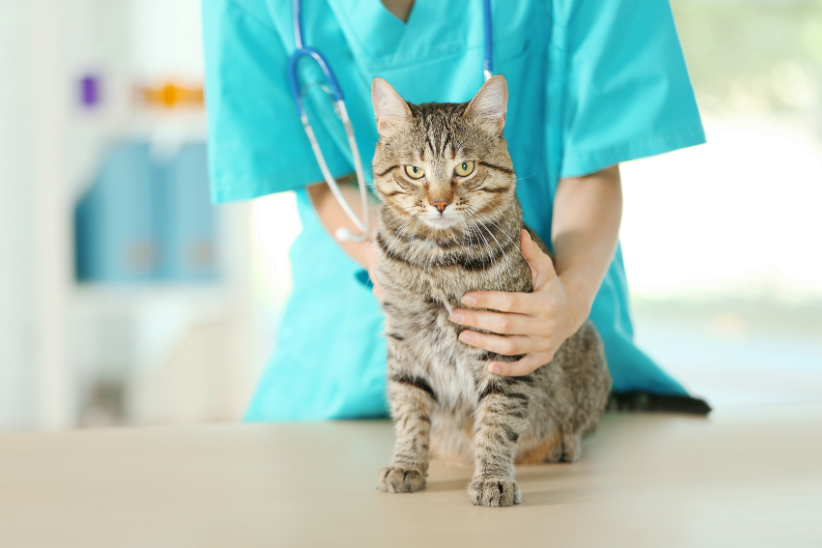Donegal Daily’s Pet Column is brought to you by veterinary nurse Michelle Kelly in association with Gary’s Pet World, Letterkenny Retail Park.
For all your pet food, health, accessories and toy needs, call instore or visit www.petworld.ie. Free shipping on orders over €29
With the cost of veterinary treatments constantly increasing, it may be a good idea to consider looking for pet insurance for your furry friend.
Much like health insurance, pet insurance covers the cost of veterinary care for your pet, including unexpected accidents and illness that may occur during your pet’s lifetime. Unfortunately there aren’t any medical cards for pets so Veterinary fees are expected to be paid on the day.
Here are some common questions that people ask before buying pet insurance:
It is important to always investigate your cover in full and always read the fine print, as each provider and cover is different.
Do I need pet insurance?
Whether or not you need pet insurance depends on several factors:
- Financial consideration: Vet bills can be expensive, how would you deal with an unexpected bill for an illness or injury if it were to end up in the 100’s or 1000’s?
- Health of your pet: Premiums tend to increase as your pet gets older, younger animals tend to be healthier, not needing as much medical care, but accidents can happen at any age. Some breeds are more susceptible to congenital conditions, for example, larger dogs are more likely to suffer from joint problems.
- Self-insurance: This is where you set aside a certain amount each month into a savings pot to cover vet bills in place of an insurance policy, but this requires discipline every month to save and also runs the risk of not being enough if the bill turns out to be more than your savings.
- The kind of pet you have: Cats, dogs and rabbits are the most common pets which people insure but you can get other animals insured, such as, gerbils, hamsters, guinea pigs, birds, hedgehogs and reptiles. Simply shop around with different companies.
- Peace of mind: For most people, having insurance for their pet allows them to provide them with the best care without having to worry about the financial burden.
Types of Insurance Cover
When looking for a policy it is a good idea to know the type of cover you require. Some examples are:
- Lifetime cover (also known as Lifelong, Reinstatement or Renewable benefit). The most comprehensive cover you can get. This covers your pet for any new illness or injury. The animal is insured for up to a set amount each year for the duration of the policy, if the limit is reached within the year then the company will not cover any further treatments until the renewal date. Some companies offer a set amount per condition per year. Long-term or recurring illnesses or injury treatments are usually covered in the following policy year with this level of cover.
- Time-Limited policies (Usually 12 months). There are 2 types: Per-condition – pays a certain amount for a new condition and when that limit is reached, the insurer stops paying. Then Time-limited will have a maximum amount allocated along with a set length of time (usually 12 months) where it will pay for treatment until one or both are reached.
- Accident only policy. This is the most basic cover available which pays a fixed sum for each accidental injury to cover a pet’s treatment. Any injury that occurred before the policy began will not be covered. The injury usually has to arrive abruptly as a result of a single event (Fracture, laceration etc.) Some may include cover towards emergency treatment of an illness. Some companies offer a time limit per condition (12 months usually) as long as the policy is renewed by the renewal date.

Things you need to know
- Pet insurance may also cover death by accident or illness. If your pet dies you may be able to claim for the amount that you paid for them. Most policies have an age limit on this.
- Missing pet cover – some companies may contribute towards putting up posters and paying a reward for the safe return of your pet (some will expect you to have them microchipped and the chip registered to you also)
- Boarding fees when owner is sick – Some companies might cover the care of your pet if you or an immediate family member within the same house needs to go into hospital for more than 2 nights up to a certain amount.
- Dental cover – Some policies may cover dental injury or illness as standard but some will not cover anything to do with dental issues.
- Pet therapies – If a pet needs herbal remedies or homoeopathy, hydrotherapy or physiotherapy, some companies tend to allow a certain amount to cover these.
- Legal Liability (dogs) – Some companies may include legal liability cover for third parties if your dog causes harm to a person, another dog or someone’s property and you are found responsible for the damage.
Pet insurance does NOT cover:
- Pre- existing conditions: any illness or injury the pet had before the policy begins. Generally these are outlined in the policy details.
- Excess: like all other types of insurance, pet insurance requires the owner to pay an excess along with the claim. The amount depends on the age, type of plan and what you are claiming for.
- Preventative treatments: flea and worm treatments are not covered under insurance.
- Vaccinations: They cannot be claimed for but it is important to keep your pet up to date with them because if they are left unvaccinated and were to catch a disease which would be prevented with vaccination, the company may choose not to cover it.
- Banned breeds: Some companies may choose not to provide cover for breeds which are banned in the country.
- Pregnancy and giving birth: If you choose to breed from your bitch or are unwilling to spay them, it is best to check whether reproductive related illness is covered by your policy. Some do not cover these.
Some companies allow you to directly claim through the veterinary clinic but make sure to check with the clinic that they will allow this too.
Please remember to always read the fine print of the policy before proceeding with the cover as the terms and conditions will outline all important information.
Michelle Kelly qualified with a BSc Honours in Veterinary Nursing from LYIT/ATU Donegal. She works full-time in a clinic in Derry. She is the proud owner of a labrador named Nala, who goes everywhere with her, even to work.
As a dog owner in the North West, Michelle says she sees a lot of misunderstanding around owning a pet. With her first hand experience in a veterinary practice, she wants to give up-to-date facts and information to pet owners and to be a person people can turn to for help and advice, especially in the local area of Donegal.

Michelle Kelly and her Labrador Nala







